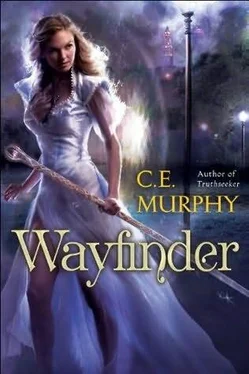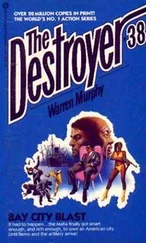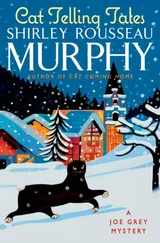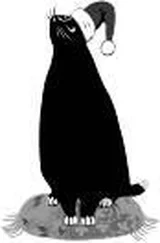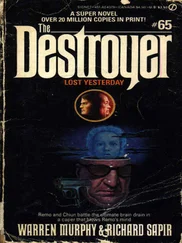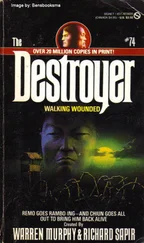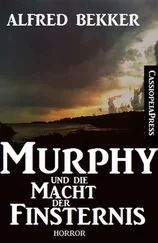It took the hindsight of centuries passing in moments to see it happen. To see how Rhiannon’s radiance faded until she looked like one of the Seelie: exceptionally beautiful, but not heartbreakingly so. To see how her concern for the land became ever-more entwined with concern for the child growing within her, until that son was born and her attachment to Annwn became an attachment to him. With each small change, a little of what she was slipped away.
And Emyr gathered it, weaving it, commanding it, holding it in his palm. Shared it, year in and year out, with Hafgan. The shard passed from one brother to the other, and Rhiannon faltered and shrank and became less than she had been. Lara’s heart pounded like a racehorse’s as she leaned against time’s constraints, desperate to warn Rhiannon of her fate.
Oisín did, even at the time. Still young, still handsome, but importantly, mortal and able to see treachery in a way that the stagnant Seelie could not. Rhiannon’s fondness for him never faltered, but neither would she hear the prophecies he made, and he was helpless then as Lara was now, watching a goddess crumble.
Níamh came from the sea early in the brothers’ plot, wedding Hafgan as Rhiannon married Emyr. She was fair and bright, like sunrise on the sea, and there was less of her to begin with than there had ever been to Rhiannon. Merrick’s birth was her ending, and had perhaps been so since the moment she left the waters.
For the briefest moment, in the scant handful of years after Níamh’s death, Rhiannon recovered some of what she had been, as if her sister’s loss awakened the goddess within her. For a little while she was vivacious and full of laughter, fascinated by the boy she’d given birth to, doting on Oisín once more, and freshly delighted to find herself with child again.
Emyr, though, was displeased, and Hafgan furious. That sparked the exchange of firstborn children, the exchange that led, on all paths, to Lara entering the Barrow-lands herself.
In the distant past, Dafydd was born. Rhiannon faded again, Emyr working hard to strip away the energies she expended in giving birth so they could never return to her. The magics reminded Lara of the worldwalking spell, setting in motion things that were never meant to be, but which were made possible by the very godhead whose power they stole. The shell was as long as his arm now, Rhiannon’s bloodstain upon it still an indelible link between goddess and land.
The ending came in a rush, for all that Lara knew Rhiannon had only scant years to live once Dafydd was born; that she would drown in the sea saving Merrick, and everything would change for Annwn.
And it did, but not in the way Lara had imagined.
Rhiannon rushed into the water she’d come from, determined to save her sister’s child. The sea was her birthplace, her home, and sudden raw strength roared through her, a reminder of what she’d been. Tumultuous song filled Lara until she felt like she might fly apart with it, but Rhiannon had no such fears. She gathered that power, remembering what it had been to be Annwn’s goddess, and still within the sea, she pushed Merrick to shore on a wave of compassion and rage.
And there on the shore, at the edge of sea and sky and earth, Emyr drove the bloodied shell shard into sand; into the sea-laden earth at water’s edge, and worked a magic to put all history to shame.
The pieces to make the spell were Rhiannon’s, not his. The sea her father, the sky her mother, the blood her own, and so it was the magic of Annwn itself that Emyr commanded. But Annwn had no will of its own, and could only be directed.
Directed by a king, himself made of Rhiannon’s blood, who was the closest thing to the goddess herself the land recognized.
Everything Rhiannon threw at the shore, her impotent anger, her desire to save Merrick, her memories of what she had been and what she might yet again be, came together at a single focal point. Emyr took them all in, draining Rhiannon of all the strength she might ever wield, and bound it in an item of power.
Lara opened her eyes, finally recognizing the rage within the staff as the terrible fury of a goddess confined.
The others awakened more slowly. Dafydd and the other Seelie had unforgiving eyes for the sleeping kings, but Oisín, like Lara, gazed at the staff, grief aging his lined face even more deeply.
“You knew.” Accusation was beyond Lara. The best she could manage was soft horror, and that was enough.
Pain spasmed across Oisín’s features, but he nodded. “I suspected. The staff would not—will still not—abide the touch of royal hands. That, I think, was what drowned the lands, far more than any intent on their part.” He made a small gesture toward the kings, and Dafydd stirred.
“Then you didn’t see?”
Lara’s stomach twisted. “See what?”
“How Emyr raised the staff and unleashed its magic on the valley. He meant to destroy Hafgan’s court so Rhiannon’s power was his alone. No wonder we think of the seas as killing. They took Rhiannon and the valley all in the same day.”
“No.” Lara shivered, looking around the gathering. “I didn’t see that. I woke up when I realized what they’d done to Rhiannon. I thought the lands had drowned before she died. I thought …” She trailed off, not really doubting the truth in Dafydd’s voice. History so old it became legend was hardly reliable, even for those who had lived it. Not even her magic could winnow falsehood from truth at such a remove. She was reminded of her world’s stories of Robin Hood, none of which had ever satisfied her. Neither could this world’s tales of drownings and retributions, not until now, with the story played out for all of them.
“I almost remember.” Aerin’s eyes were closed, her voice faint and distant. “I do remember she went into the water after Merrick. I remember that the sea rose up and cast him out. I do not … quite … remember that it kept coming, only that we took to the horses quickly, and rode hard. Dafydd had seen only a handful of summers. He rode with me. That, I remember. How can I forget that which I was witness to?”
“You were young,” Oisín answered. “Young, and lied to, and memories slip into fog as time passes by. You’re not to blame for forgetting, Aerin, though I, perhaps, am.”
He took the staff from Lara, resting it across his lap, fingers light on its carved surface. “I wasn’t at the ocean that day, but I recall that tremors shook the whole of the land until Emyr cast this away. My eyesight was failing by then, and I took it up, never certain of why its presence felt so familiar. I imagined it to be my Rhiannon, returned from the sea, but I am a poet. Pretty stories are my trade.”
“I must have known Emyr had it when we left the shore that day. It always reminded me of my mother. Why did you refuse to give it to me?” Dafydd asked.
“Because you were too young to stand against Emyr, and the staff would have asked it of you.”
Lara gave Oisín a bemused look. “It doesn’t ask for anything.”
“It would have, of Dafydd. Of her son.”
“Ioan’s her son, too, and it was ready to burn through him and obliterate Boston!”
“But we were right.” Ioan spoke for the first time, interrupting Oisín’s drawn breath. He gestured at the staff, though he made no effort to actually touch it. “Emyr drowned the Unseelie lands. My people have been done wrong by, Truthseeker. Will you help us now?”
Lara, sourly, said, “Hafgan isn’t exactly innocent of wrongdoing himself,” but wiped her words and tone away with a movement of her hand. “It’s not your peoples’ fault, though. It’s these two. The kings who are the last of Rhiannon’s blood.”
Читать дальше
